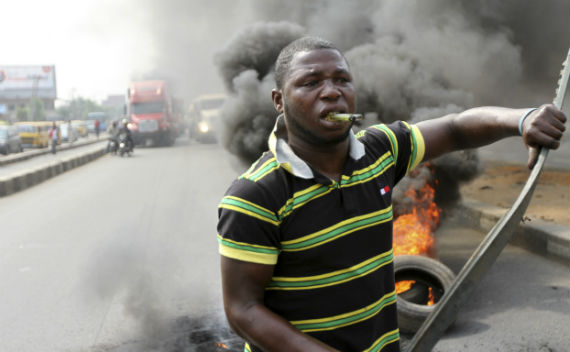Nigera’s "War on Terror" and the Fuel Subsidy Ends
More on:

Prof. Jean Herskovits, a professor of history at the State University of New York, Purchase, and a distinguished Africanist, has issued a salutary warning against U.S. involvement in a Nigerian ‘war on terror’ involving Boko Haram in a January 2 New York Times op-ed.
Professor Herskovits is responding to the bombings over the Christmas weekend allegedly by Boko Haram, earlier statements by U.S. Africa Command commander General Carter Ham on the threat of terrorism in northern Nigeria, a recent House Committee on Homeland Security report titled ‘Boko Haram: Emerging Threat to the U.S. Homeland,’ and proposals to place Boko Haram on the U.S. foreign terrorist organization list.
She says, “there is no proof that that a well-organized ideologically coherent terrorist group called Boko Haram even exists today.”
I concur with her argument that an apparent U.S. bias toward President Jonathan’s government in Abuja and support for a Nigerian ‘war on terror’ risks alienating Nigeria’s Muslims – half of the population of sub-Saharan Africa’s largest state.
What is ‘Boko Haram’? It has no charismatic leader, nobody has ever met its purported ‘spokesmen,’ it appears to have no politburo, and it has issued no definitive manifesto. Yet, the Abuja government – and much of the domestic and international media – assigns responsibility to it for virtually every violent episode in northern Nigeria, as Prof. Herskovits observes.
The violence in northern Nigeria is real, horrific, and growing. But, rather than thinking about Boko Haram as a terrorist organization to be countered through traditional security measures, perhaps it would be more realistic to view it as a grass-roots revolt with many players and motivations and little coherence in the context of a political system that has done little to address poverty and promote social justice. No doubt it includes criminal elements, and politicians will seek to exploit the disaffection associated with it to advance their own agendas. But that does not make it an organization appropriate for a terrorist list.
The Abuja government should view Boko Haram as a political issue reflecting regional grievances, rather than exclusively as a security challenge. But, the Jonathan government’s ending of the longstanding fuel subsidy on January 1 will likely discourage a change of course. Already fuel costs have increased by 116 percent. Whatever the long-term benefits, in the short-term there will be an increase in popular misery. Yesterday, there were demonstrations against the ending of the subsidy in many of Nigeria’s cities, including Lagos, Kano, and Abuja. In the face of popular anger, Nigeria’s largely moribund trade union movement may acquire a new lease on life and civil society organizations could re-energize. Student and faculty groups are also supporting the demonstrations. With pressure from the National Assembly, the government may yet back down.
The fuel subsidy issue is not directly related to Boko Haram, but in the face of popular opposition to it, the concern must be that the Jonathan administration will more likely circle the wagons than engage in fresh thinking about grievances in the North.
More on:
 Online Store
Online Store
